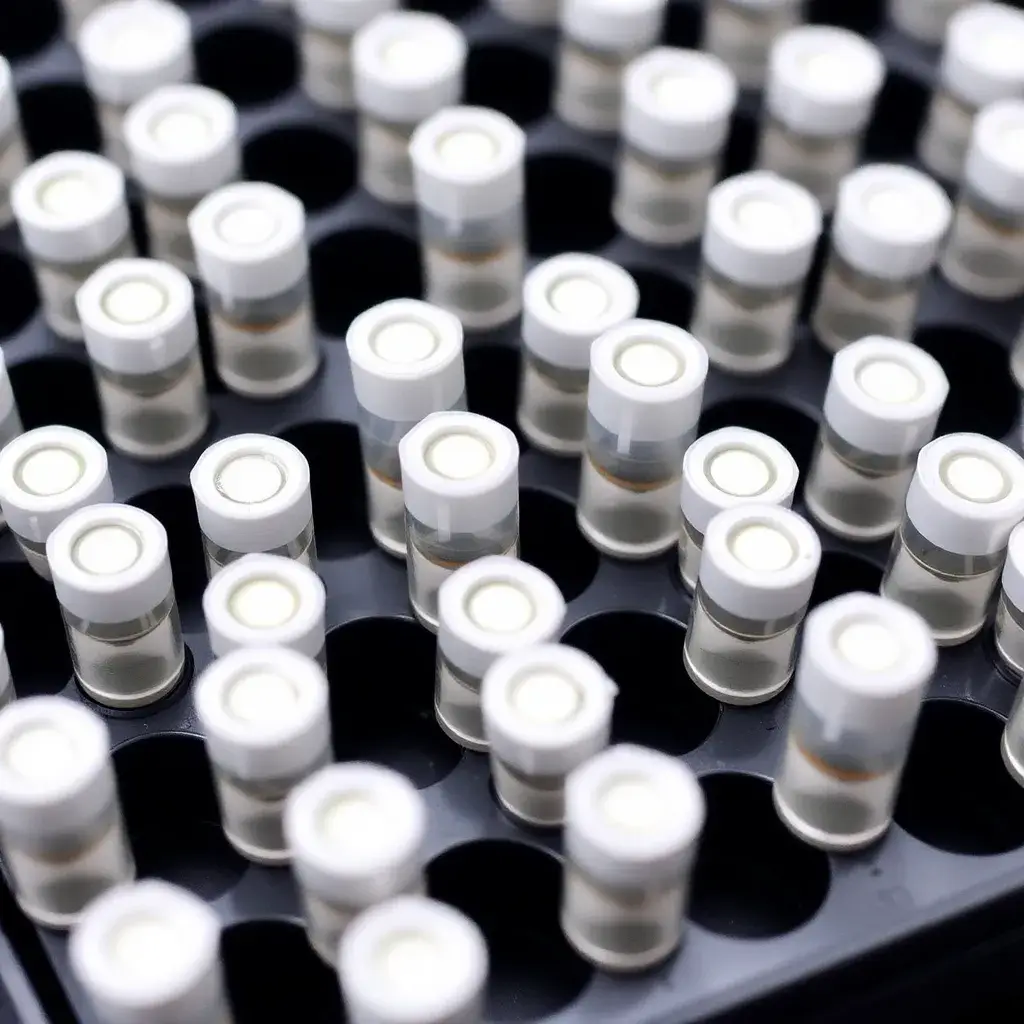
Tray of Samples for LCMS Analysis
This involves the preparation of biological or clinical samples for Liquid Chromatography-Mass Spectrometry (LC-MS) analysis, a method used for detecting specific compounds in complex biological matrices.
Overview
ISBT Blood Typing Systems
The International Society of Blood Transfusion (ISBT) recognizes thirty-nine major human blood typing systems for the detection of common and rare blood group variants, but the most common are ABO and Rh blood grouping systems. The basic principle of blood typing involves observation of a simple antigen-antibody reaction leading to hemagglutination or clumping of RBCs.
ABO Blood Grouping System
In the ABO system, the phenotype of an individual is usually determined by the hemagglutination reactions of the individual’s RBCs with Anti-A, Anti-B, and Anti-AB antisera (forward grouping). Lack of hemagglutination demonstrates the absence of the specific antigen, signifying a negative test. In testing blood samples from adults, confirmation of the ABO blood group can be provided by the reactions of the individual’s serum with standard A and B red cell suspensions (reverse grouping).
Blood Grouping Reagents and Devices
Blood grouping reagents and devices are highly regulated in all markets because the test results do not provide a diagnostic outcome, rather a therapeutic one. The results determine which donor blood, blood products or transplant tissues will be given to a patient. The development and manufacturing of regulated blood typing reagents and devices rely on the quality, consistency, and reliability of the constituent critical antibody raw materials, and ancillary chemicals and components.
Blood Typing Products
We offer finished reagents and raw materials for blood typing. Please contact us to learn more.